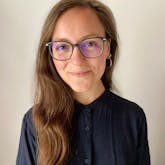Climate Change Adaptation and Managing Risk of Extreme Events
Already over
Climate change has led to a change and an increasing number of climate and weather extremes that may cause disasters. Anticipating the impacts of climate change and taking appropriate actions to manage the risk of extreme events has become necessary within humanitarian action.
The course covers various thematic areas to provide the foundations and a basic understanding of climate change adaptation and of managing risk of climate-related extreme events. It presents to you various adaptation measures in selected sectors. Several international experts will give you inputs, stimulate discussions and group exercises on the thematic areas.
The course will be conducted on several days, mostly in the afternoon time (CEST). The work language is in English.
The course is part of aha's certification scheme and can be credited towards a Certificate of Advanced Studies in "Anticipatory Humanitarian Action", under prerequisite of passing the exam (please also see the general exam regulation of aha). The exam is in form of individual or group work IN ADDITION to attending the training!
You will learn
which concepts and key terminologies exist in climate change adaptation and how to manage the risk of extreme events
how to apply measures and anticipatory actions in the context of risk management of climate-related extreme events
which current developments and adaptation measures are relevant in selected sectors: Infrastructure, agriculture and health
Target group
Young and senior professionals in humanitarian action and other practitioners in relevant fields with prior knowledge of humanitarian action or disaster management, but little knowledge of climate change adaptation.
Schedule
Welcome & Introduction
Thematic Block 1: Introduction to Main Concepts and Terminologies in Climate Change Adaptation
Thematic Block 2: Climate Change Impacts and Adaptation in Health Sector
Prof. Dr. Udo Nehren
Lecturer

Prof. Dr. Udo Nehren / TH Köln
Udo Nehren is Professor of Ecosystem Management at TH Köln – University of Applied Sciences, Germany. His research and teaching focus on social-ecological systems, particularly with regard to ecosystem-based disaster risk reduction and climate change adaptation. He authored several publications on this topic and has worked as a trainer for UN agencies, NGOs, and private companies. Moreover, he co-developed the first international MOOC on climate change adaptation, disaster risk reduction, and ecosystems.
https://www.th-koeln.de/en/person/udo.nehren/
Dr. Simone Sandholz
Lecturer

Dr. Simone Sandholz / Institute for Environment and Human Security of the United Nations University
Simone Sandholz leads the Urban Futures & Sustainability Transformation Programme at UNU-EHS. Her two particular fields of expertise are resilient urban and regional development with an emphasis on critical infrastructures and nature-based solutions for risk reduction and climate change adaptation, closely linked to the second research area on sociocultural aspects of sustainable development, namely place attachment, adaptive social protection, good governance and sustainable livelihood approaches, based on empirical social research methods.
https://ehs.unu.edu/experts/researchexperts/simone-sandholz.html#profile
Flavia Mara
Lecturer

Flavia Marà / World Vision Germany e.V.
Flavia Marà is a Livelihoods Technical Advisor at World Vision Germany e.V. Her work focuses on sustainable agricultural development (agroecology, climate-smart agriculture), community-based restoration approaches like Farmer-Managed Natural Regeneration (FMNR), local agricultural value chains, climate change adaptation and mitigation. Previously, she has worked at the Centre for Rural Development (SLE), GIZ and Welthungerhilfe.
https://www.worldvision.de/informieren/themen/lebensgrundlagen
Prof. Dr. Jörg Szarzynski
Lecturer

Prof. Dr. Jörg Szarzynski / Institute for Environment and Human Security of the United Nations University
Joerg Szarzynski has a broad expertise in civil protection and humanitarian relief, disaster management, emergency preparedness and response, as well as multi-hazard early warning systems and anticipatory action. Additionally, he also works on the field of geospatial information technology application for disaster management, environmental change and sustainable development. At UNU-EHS, he serves as co-director of the Global Mountain Safeguard Research (GLOMOS) at UNU-EHS in Bonn on climate change adaptation and emergency response preparedness in mountain regions.
https://ehs.unu.edu/experts/researchexperts/jorg-szarzynski.html#profile
Dr. med. Sabine Baunach
Lecturer

Dr. med. Sabine Baunach is a medical doctor with a Master of Science in International Health and a Diploma in Tropical Medicine and Public Health. After initial years in the German healthcare sector she has worked for many years internationally for various humanitarian and development aid organizations to protect human health of crisis affected populations with a focus on Sexual Reproductive Health and Rights and Child Health. For some years now, she has expanded the focus of her work to address climate and environment related implications to human health and to foster pathways into a just and healthy future for all through a Planetary Health approach.
Currently, Sabine works as health consultant and trainer at the nexus of climate change and health, SRHR and capacity building.
Sources
360,00€
20.10.2023 - 25.10.2023
16 hours of training
Online Event
Maximum of 16 attendees
0 of 10 required registration for this course. You will be informed after registration. Share this course with friends and colleagues to make sure it will be carried out.
 This training is organized by Aktion Deutschland Hilft e.V.
This training is organized by Aktion Deutschland Hilft e.V.